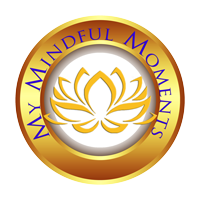Too often people think of vulnerability as a bad thing. Images of a person sobbing while carrying a box of tissues around and sharing their deepest, darkest secrets and regrets often creep into our imaginations. Vulnerability is definitely a misunderstood emotion if this is the image that it conjures! I think it’s time for vulnerability to make itself known as what it truly is: a powerful tool for connected leadership. “Vulnerability” is officially rebelling against the world’s preconceived notions of what it means.
Being vulnerable doesn’t mean you suddenly have to wander around your office like some sap, crying and over-sharing all the time. Let’s just scratch that image right out of our minds. Imagine vulnerability as a tool that serves two purposes: it allows you to genuinely connect when appropriate and with appropriate sharing, and it also allows your team and the people around you to see you as a fellow human being as opposed to a machine wearing a human face. If you really think about it, vulnerability is kind of like a superhero: usually in hiding but extremely powerful and able to save the day when necessary.
So here’s the next question: how do you use vulnerability as a strength? Here are five steps to get you started.
Five Steps to Using Your Vulnerability as Your Strength
1. Change the way you think about vulnerability. When you shift your perception from sobbing person with tissues to superhero, vulnerability begins to look more like a useful tool. Leaders often feel like they have to be stronger, better, faster, and more intelligent than everyone else, but that is a fallacy; that’s a lie your ego tells you to keep you from becoming truly great because then your ego becomes unnecessary. So, the next time you hear about someone having a problem, personal or work-related, see if you can’t relate a personal story of your own to help them solve whatever their problem might be. You’d be amazed how many similar experiences people of all walks of life have.
2. Yes, vulnerability is a strength. Not only does this acceptance set you free from trying to hide your true self and pretend to be perfect all the time, it also allows you to connect more easily and make full use of your team’s talents and skills without feeling undermined at any point. You might even find yourself okay with being wrong or making a mistake. Surprise! ;)
3. Keep your stories and sharing appropriate. If you find yourself in a situation where your input would be valued and you happen to have a corresponding story to tell that fits the situation (which I’m sure you do), go for it and share! However, if you begin finding yourself interrupting or monopolizing conversations with your stories, that could backfire. Keep it appropriate for what’s happening and consider whether the story is appropriate to share with the people around you.
4. Practice. You won’t be great at being vulnerable at first, especially if it’s something you’ve fought vehemently against for your entire life. “I’m supposed to be the strong one,” is a thought that may often run through your head and hinder you from sharing and connecting with people, but this kind of thinking tends to make you isolate yourself. The point is to connect, not isolate… yes, people may view you as strong, but you don’t have to be that way all the time. It’s okay to feel, and it’s okay to let on that you do, even if it is just one little bit at a time.
5. Be your true self. This entire month has been about being genuine and connecting with your people, so of course, it’s important to be yourself when you’re sharing any kind of experiences or personal stories. If you don’t have a story for the situation but know of one, tell that but not as your own – give credit where credit is due. Once you open up and people feel more able to open up to you, your relationships with your coworkers and team members will flourish, and chances are that everyone will work better together, too.
Everyone on the planet likes feeling connected to others, but it’s often difficult for people for a number of reasons. Whatever your reasons might be, try to work through them, let them go, and do it anyway. Any and all of the experiences you have with people will either make you happier, help you learn, or help you grow through challenges and disappointments. No matter what the case, you and the people you come into contact with will be all the better for it in the long run. Mindfully lead your people into their future with your newfound strengths!










